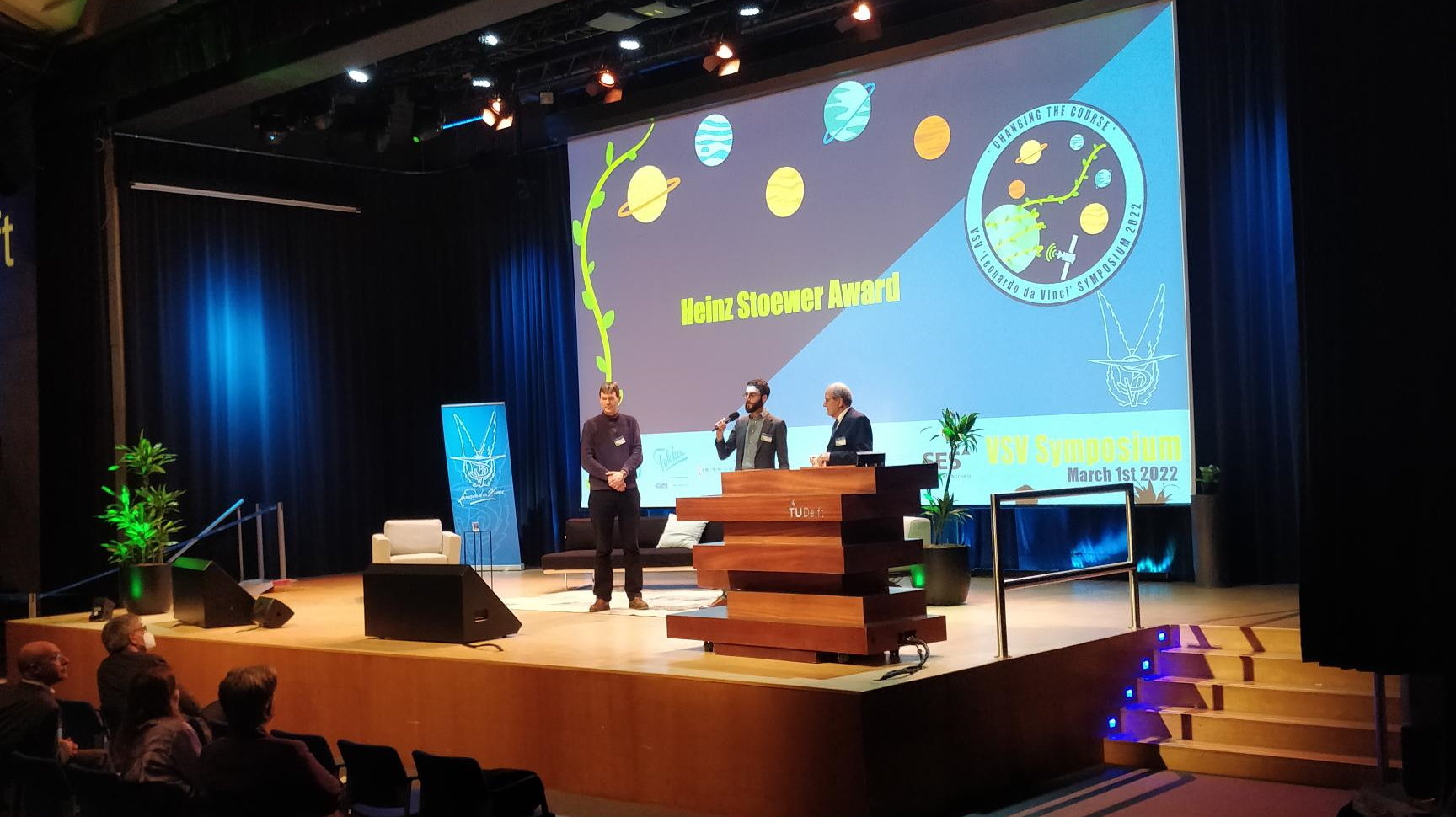Berend Schuit wins Heinz Stoewer Space Award 2022
Berend Schuit has won the Heinz Stoewer Space Award 2022 for his graduation project on methane plumes that he carried out under the supervision of Dr. Daphne Stam at SRON. The Faculty of Aerospace Engineering at TU Delft presents this award annually to the student whose master’s thesis scored highly in terms of quality and social impact. Schuit built a machine-learning model that automatically identifies methane plumes from data collected by the Dutch space instrument TROPOMI. Berend Schuit graduated in 2021 under the supervision of Dr. Daphne Stam at the MSc track Space Flight. He is now doing a PhD at SRON.
Methane is the second most important greenhouse gas emitted by humans after CO2. 'A small part of the sources is responsible for a disproportionately large part of the total emissions,' says Schuit. 'In the fight against global warming, it is important to know where these large methane sources are located.' TROPOMI provides daily measurements of methane in the atmosphere all over the world. Because these are about ten million measurements per day, it is impossible for scientists to manually search the entire globe for possible sources of methane. Moreover, there are disturbing factors that make it difficult to translate measured methane concentrations into emissions. For instance, the wind causes methane emissions to spread and clouds block the view from space.
Schuit has developed a machine-learning model to automatically detect methane plumes worldwide on a daily basis. To this end, Schuit trained his model to automatically recognise methane plumes in the TROPOMI measurements. 'I first gave the model a thousand examples of methane plumes that we found manually in the data,' says Schuit. Then I gave the model two thousand observations without methane plumes. This teaches the model to recognise methane signals. No two plumes are the same. With this artificial intelligence, the model is able to detect future, still unknown, methane plumes based on what it has learned from the past.'
Thanks to Schuit's model, the SRON-TROPOMI team is now better able to automatically detect and investigate methane sources. Every day they now receive a list of locations that show high emissions. Schuit: 'This includes known sources, such as the leaking oil and gas installations in Turkmenistan, which means that the model works. But we also regularly see new sources. We pass on the most interesting ones to, among others, the team behind the Canadian satellite GHGSat, which zooms in further and can thus identify the leaking methane source precisely.
The Heinz Stoewer Space Award was initiated in 2018 by Prof. Stoewer when he received the prestigious Space Engineering IEEE Simon Ramo Medal. To encourage and congratulate master's students on their research, he has decided to donate his prize money to promote the visibility of work with great social relevance.
